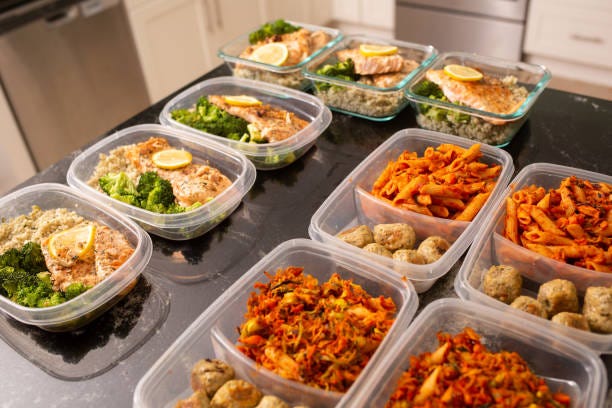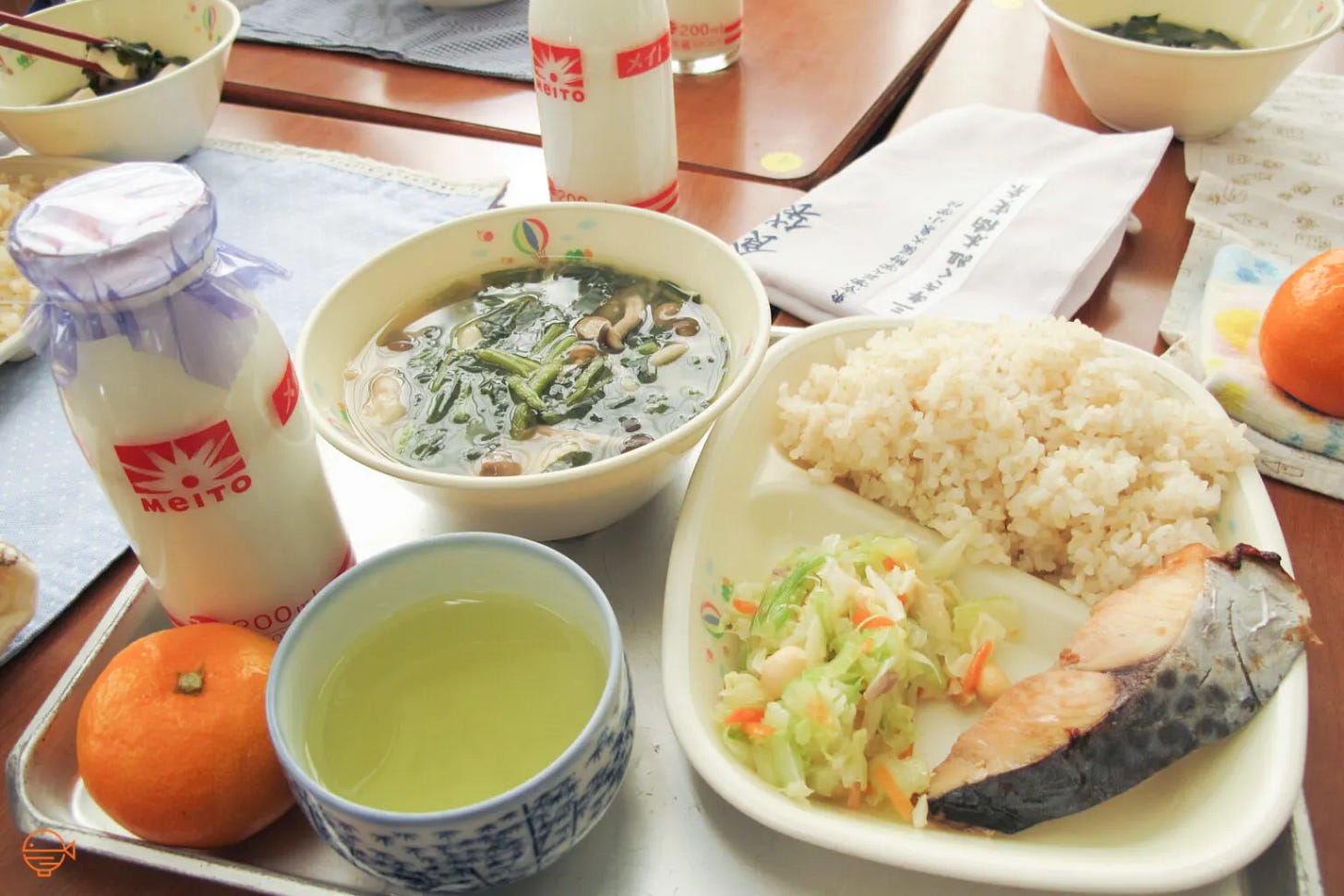Is restriction always 'Diet Culture'?
an argument for intention, dare I say 'organization' around food
There is a very loud theme in the Anti-Diet world which vilifies any and all organization or intention around how one eats as DIET CULTURE. The argument is that any kind of measuring, tracking or organization, like ‘meal prepping’, or, from what it seems, general attention beyond ‘eat what I want when I want’ is automatically restrictive. Any restriction is described as an infringement on joy, a form of anti-fat behavior, a result of our cultural focus on unattainable beauty standards and the unequal burden women experience at home and in the work place and thus this behavior is a self enforced form of harm. The person doing it, most definitely unconscious of their true motives, unaware of the harm they are perpetuating.

A lot of this rhetoric seems to come from the rediscovery of the 1995 book Intuitive Eating (which was and is groundbreaking and should be read by anyone struggling with dieting and food anxiety). Intuitive Eating is primarily about learning to hear your own physical cues, to stop editing them through an anti-fat, misogynistic and fear based cultural lens and just eat, when you are hungry, whatever you want. It’s radical in its simplicity. You are the boss. Your body deserves your care. Full stop.
However, Intuitive Eating means eating, intuitively, and intuition’s voice is not universally clear or immediately balanced. Anyone who has ever had to train an employee or help a friend learn how to use a new program has been aghast at what appears to be a complete lack of ‘common sense’ (how could you not KNOW THIS??). Things which often seem obvious, to many people, are not.
Feeding yourself via your own inner wisdom and self-awareness is the holy grail. Few people do it. If most of us did, there would be no Diet Industry and no labelled ‘low fat’ foods. We would all have the innate ability to self regulate to our physical and emotional needs. We would never come home ‘starving’ after putting off meals during a busy day. We would never spend a night tossing and turning with the sour stomach of having eaten into a fullness we find uncomfortable, or that even requires a few emergency bathroom experiences. Our intuition would guide our hands, tastes and choices. We would be vital, calm, and live with consistently reliable digestion.
In order to have the kind of developed intuition that can cut through personal, cultural, and social media noise, one has to have a starting point. We have to know a few things. The intuition we rely on as adults to guide us away from dangerous situations, people and places is not the same as the instinct which makes us run when a wild animal snarls at us or a fire appears where it should not. The internal voice that asks that we avoid the dark alley, the elevator ride with the creepy stranger, the invitation that just doesn’t sit right, doesn’t come because we are all born knowing our boundaries and limitations (not being super hero’s we learn that not all foes need be confronted head on and vanquished at all times). We are taught, either directly from caregivers, or through media and experience, that certain people, places and situations are dangerous. We come to call this our intuition. Our guiding voice. But in reality it is culturally learned, and was embedded at some point from the outside.
For most people, an understanding of food and nourishment, the why’s and how’s of how our body eats, breathes and lives every day is lacking. Our education system long did away with classes like Home Economics which taught, among other things, basic cooking skills. We barely learn anatomy in school, never mind how complex systems like our digestion or metabolism work. Information like this would also teach us that some things are nourishing and some things are not. I would go so far as to call these understandings ‘limitations’, restrictions even.

Your health is not anyone’s business but your own. You don’t owe anyone but yourself your own personal version of your ‘best health’ (which looks like, and is many things, visibly, invisibly etc). Our healthcare system is deeply entwined with white western patriarchal values. These will, and do, incorrectly skew scientific data, bias studies, and create unjust unsafe spaces where far too many health ‘professionals’ feel free to use moralizing language to judge our body and medical needs. And… some foods are better for us than others, especially in regard to their quantity.
There is a nutritional difference between Doritos and an apple, Sour Patch kids and fresh baked bread. The companies that produce these things (even beloved Annie’s!) are predatory, rampantly capitalist, and frankly, hope we will become addicted to these products even if in doing so our mental and physical health is severely negatively affected. These kinds of foods are not freedom, no matter how much we love having brand loyalty, as though Diet Coke was an old roommate we call from time to time to reminisce over the good old days. Feeding your dog Raisin Bran instead of the appropriate dog kibble will have specific health effects on the dog no matter how yummy your dog might find cereal or things that are dangerous for dogs to eat - like raisins. Eating more non-nutritive ie unsupportive foods (or things that are edible but not actually food as I like to call them) vs nutritive ie supportive foods will have measurable effects and felt differences in our bodies. We don’t have to take action based on that, we don’t have to personally value that, but it is true nonetheless. And for some people, in order to develop the internal compass that helps them choose meals and snacks that rely less on the whim of ‘yum I like that’ or ‘I’m hungry and this is here’, a system, or a set of limitations is helpful to guide.
Restricting ourselves is very often how we become safe or respect the effects of our learned boundaries - seatbelts come to mind - or avoiding drinking to blackout or even puke levels (or, stopping at one drink even when your friend orders another just because you only want one, even when she gently (or not so gently) presses you). If you grew up without sensible boundaries around food you might struggle to feel good in your body and have a body which it feels good to inhabit. Not just because the world is cruel to those that don’t conform to white western beauty standards but because it’s hard to move around when your body is not being nourished (And I don’t necessarily mean existing in a large body. Many bodies, in all shapes and sizes, are incredibly undernourished and generally feel like crap. We are often reaching for more caffeine without realizing a series of balanced meals would do wonders.)
I believe food is powerful and should be respected. I believe we should be respected. I try to respect myself. Sometimes that looks like a boundary. Sometimes, oftentimes, boundaries mean saying no. Sometimes a ‘no’ looks similar to restriction, the bad kind, (sometimes it is), but saying no can also be a simple way to create a structure which best supports us. And any structure by its nature must have limits.
Most of the time when we are measuring, portioning, tracking, we ARE dieting and we ARE doing it because we fear being fat or because we feel shame. But there are also myriad reasons a person might want to ascribe to a set system; to learn about food, to better energize themselves, to put attention towards a part of their life and lifestyle that they’ve never focused on or perhaps willingly ignored. And not everyone is naturally fat. For a lot of people, gaining weight is a signal that our lives and health are out of balance. For many people weight gain is due to an illness or a period around illness, hormones, or, for most of us, being so incredibly busy and overwhelmed that all means of caring for our body goes out the window. In those instances, weight gain, can be a gentle (not panic inducing) message from our body to slow down, pay attention and take care. Certain routines and actions, who’s side effect might be ‘weight loss’, but whose primary goal is to give ourselves time, care and the kind of nourishment that helps us regain former levels of energy or health, may be usefully implemented.
Those are optional values. Those are optional tools. They don’t have to be yours. But if at any point it is helpful for you to track, measure, count or get more nitty gritty with your food and it feels - intuitively - like that would support your overall wellbeing, I don’t think anyone, especially those who are freshly out of the clutches of Diet Culture and still very visibly healing, should make you feel otherwise.
I’ve written about how maybe you do eat too much and move too little and so what?
And about the mindf*ck of restricting yourself for 7 decades of your life.
And last week I reran a favorite piece that is both a pean to Charlotte Gainsbourg and thoughts on sometimes what we mean when we say we ‘want to lose weight’.
I’m able to work on all the things I do because of the support of people like you. Please consider a paid subscription. Any income goes not just to myself but pays my small staff of young women who make it possible for me to run my business.
Want to work with me?
Nourish Yourself is a Virtual 7 Week support system that gives you the foundation and accountability to finally stop eating with guilt and anxiety. Join the waitlist!
Virtual Self-Paced Series; Stability or Strength at your own pace!
Book a session with me!
Look here for ways we can connect





